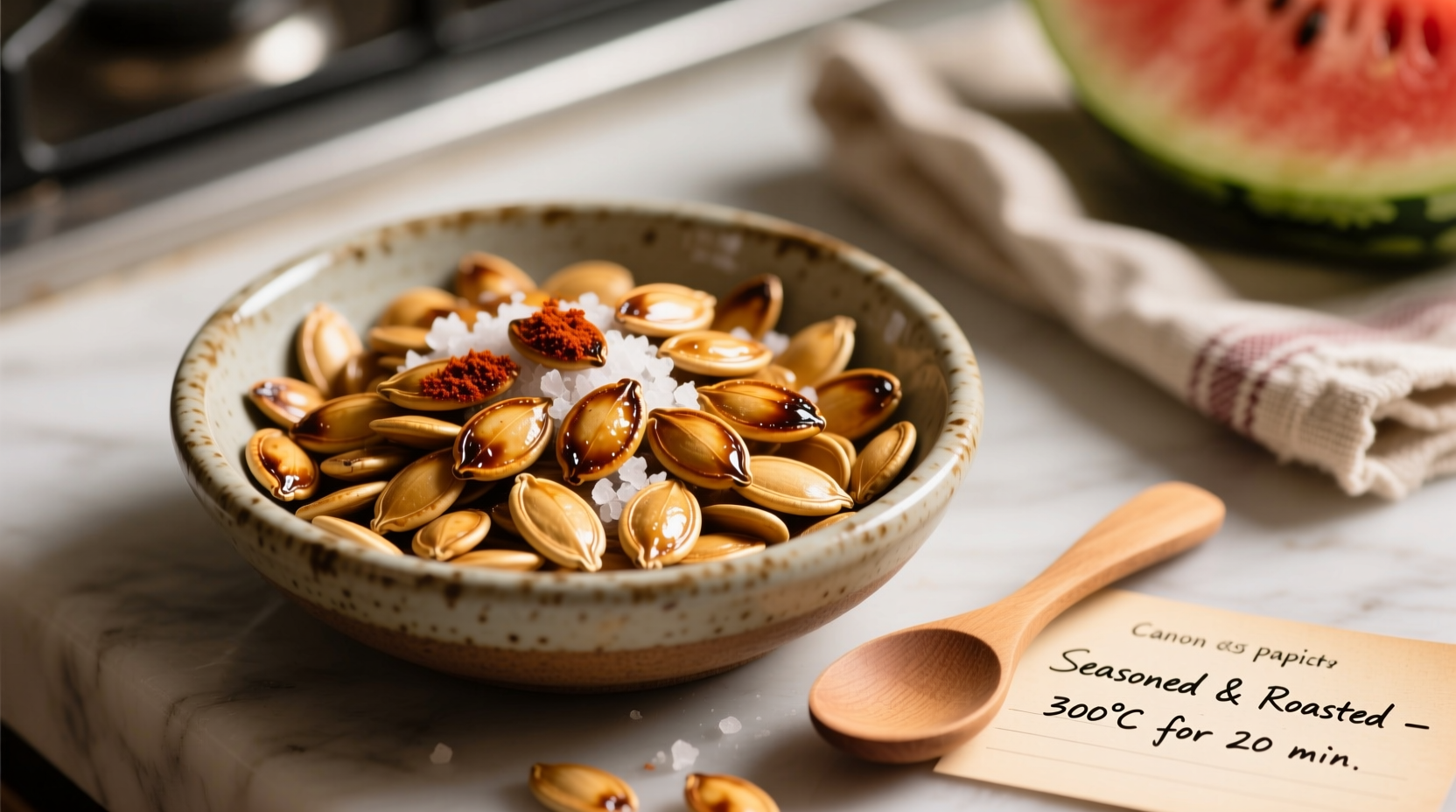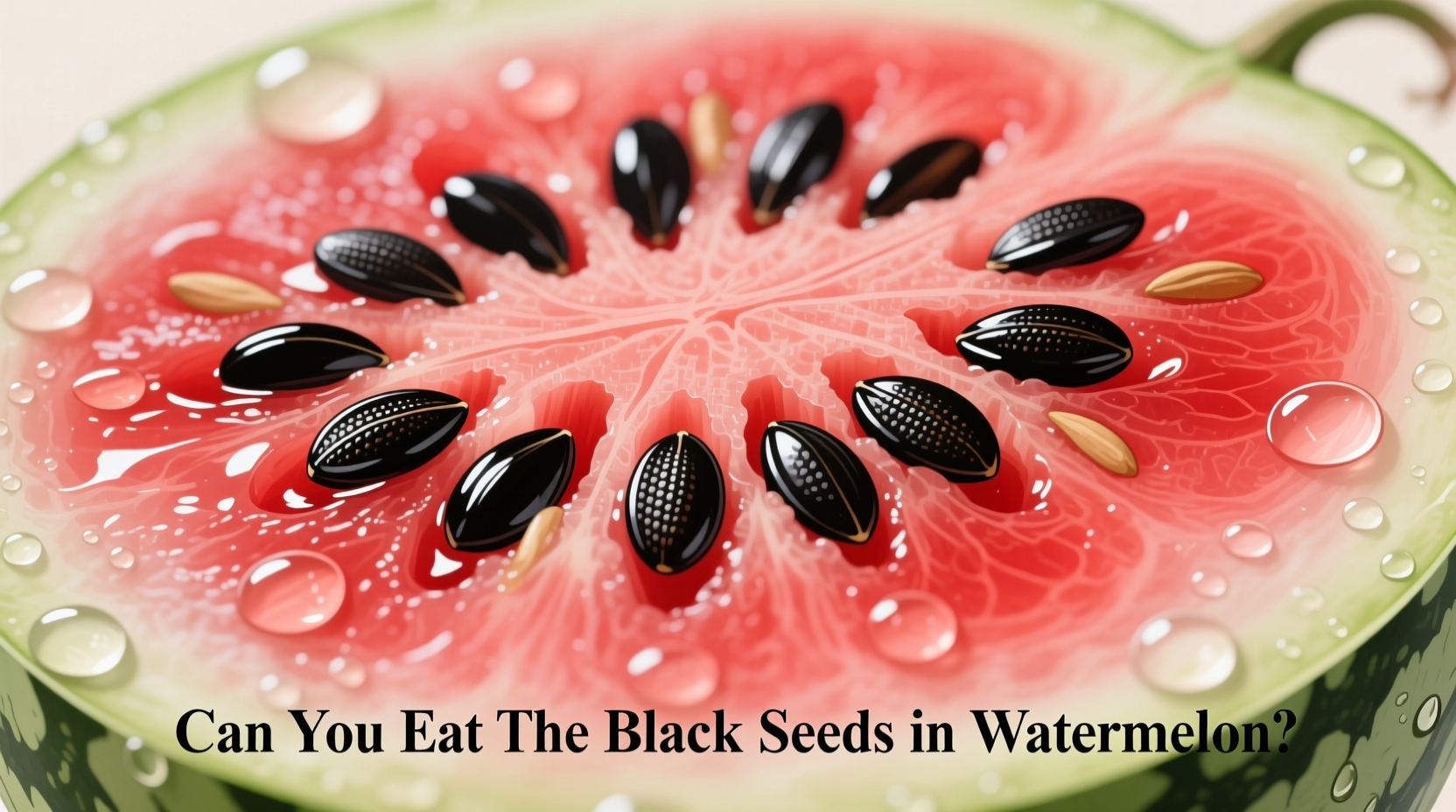For years, watermelon lovers have spit out those dark seeds without questioning why. But what if you've been missing out on a nutritious snack right inside your favorite summer fruit? Let's clear up the confusion once and for all.
The Truth About Watermelon Seeds: What You Need to Know Immediately
Contrary to popular belief, black watermelon seeds aren't harmful or difficult to digest. In fact, cultures around the world have enjoyed them for centuries. The University of Illinois Extension confirms that all parts of the watermelon, including the black seeds, are safe for human consumption.
While seedless watermelons have become popular in Western markets, traditional varieties with black seeds remain common globally. In many African and Asian countries, watermelon seeds are intentionally harvested, roasted, and sold as nutritious snacks.

Watermelon Seed Nutrition: More Than Just a Snack
Watermelon seeds pack a surprising nutritional punch that most people never benefit from. According to USDA FoodData Central, a quarter cup of dried watermelon seeds contains:
| Nutrient | Black Watermelon Seeds (¼ cup) | Common Nutritional Value |
|---|---|---|
| Protein | 8g | 16% of daily value |
| Magnesium | 140mg | 33% of daily value |
| Iron | 1.5mg | 8% of daily value |
| Healthy Fats | 6g | Primarily unsaturated fats |
These values make watermelon seeds comparable to pumpkin seeds in nutritional profile, yet most Americans discard them without a second thought. The seeds contain essential amino acids and healthy fats that support heart health and muscle function.
How to Enjoy Watermelon Seeds: Practical Preparation Methods
Eating watermelon seeds straight from the fruit is perfectly safe, but preparing them properly enhances both flavor and digestibility. Here's how to transform those black seeds into a delicious snack:
Raw Consumption Method
Simply rinse the seeds under cool water to remove fruit residue, then chew thoroughly. The tough outer shell softens when chewed properly, making digestion easier. This method works well for small quantities while enjoying your watermelon.
Roasting Technique for Maximum Flavor
- Collect seeds from 2-3 watermelons
- Rinse thoroughly under cold water
- Soak in salted water for 10 minutes (1 tsp salt per cup water)
- Spread on baking sheet lined with parchment paper
- Bake at 325°F (163°C) for 15-20 minutes
- Cool completely before storing
This simple roasting process transforms the seeds into a crunchy, nutty snack. For extra flavor, toss with olive oil and your favorite spices before baking. Try paprika for a smoky kick or cinnamon for a sweet treat.
Addressing Common Concerns: Safety and Digestion
Many people worry about potential risks when eating watermelon seeds. Let's examine these concerns with evidence-based information:
The Cyanide Myth
A persistent myth claims watermelon seeds contain cyanide. This confusion likely stems from knowledge about apple seeds and stone fruit pits, which do contain trace amounts of cyanogenic compounds. However, watermelon seeds contain no cyanide compounds according to the FDA's food composition database. They're completely safe to eat without concern.
Digestion Considerations
While watermelon seeds are safe to eat, their tough outer coating might cause minor digestive discomfort if consumed in very large quantities. For most people, eating seeds from one or two watermelons poses no issues. If you have sensitive digestion, try lightly roasting the seeds to soften the exterior or chew them thoroughly.
Special Populations
Certain groups should exercise caution with watermelon seeds:
- Young children: Supervise consumption to prevent choking
- People with digestive disorders: Consume in moderation
- Those with seed allergies: Avoid completely
The American Academy of Pediatrics recommends that children under four avoid small, hard foods like raw seeds due to choking hazards. For older children and adults, watermelon seeds present no special risks.
Watermelon Seeds Through History: A Timeline of Consumption
Watermelon seeds have been valued as food for centuries, long before modern seedless varieties became popular:
- Ancient Egypt (2500 BCE): Watermelon seeds appear in tomb paintings and were likely consumed as food
- Traditional African Cuisine: Roasted watermelon seeds remain a common snack and ingredient
- Chinese Medicine: Watermelon seeds have been used for their diuretic properties
- 19th Century America: Seed spitting contests emerged as popular entertainment
- Modern Times: Seedless watermelons dominate Western markets while traditional varieties remain popular globally
This historical perspective shows that eating watermelon seeds isn't some new food trend—it's a practice with deep cultural roots that modern breeding practices temporarily sidelined.
Maximizing Your Watermelon Experience: Pro Tips
Now that you know black watermelon seeds are edible and nutritious, here's how to make the most of your watermelon eating experience:
Seed Harvesting for Later Enjoyment
When enjoying a watermelon, collect the seeds in a bowl of water. The good seeds will sink while pulp floats. Drain, rinse, and either eat immediately or prepare for roasting. Store dried roasted seeds in an airtight container for up to two weeks.
Culinary Applications Beyond Snacking
Don't limit yourself to plain roasted seeds. Try these creative uses:
- Add to trail mix with dried fruit and nuts
- Grind into "seed butter" similar to peanut butter
- Use as crunchy topping for salads and yogurt
- Incorporate into bread or muffin recipes
Selecting Watermelons with Edible Seeds
When shopping, look for traditional seeded varieties like Crimson Sweet or Charleston Gray. These heirloom types typically have larger, more flavorful seeds perfect for harvesting. Avoid overly ripe watermelons if you plan to roast the seeds, as the seeds become too soft.
Common Questions About Watermelon Seeds Answered
Let's address some frequently asked questions about eating black watermelon seeds:











 浙公网安备
33010002000092号
浙公网安备
33010002000092号 浙B2-20120091-4
浙B2-20120091-4